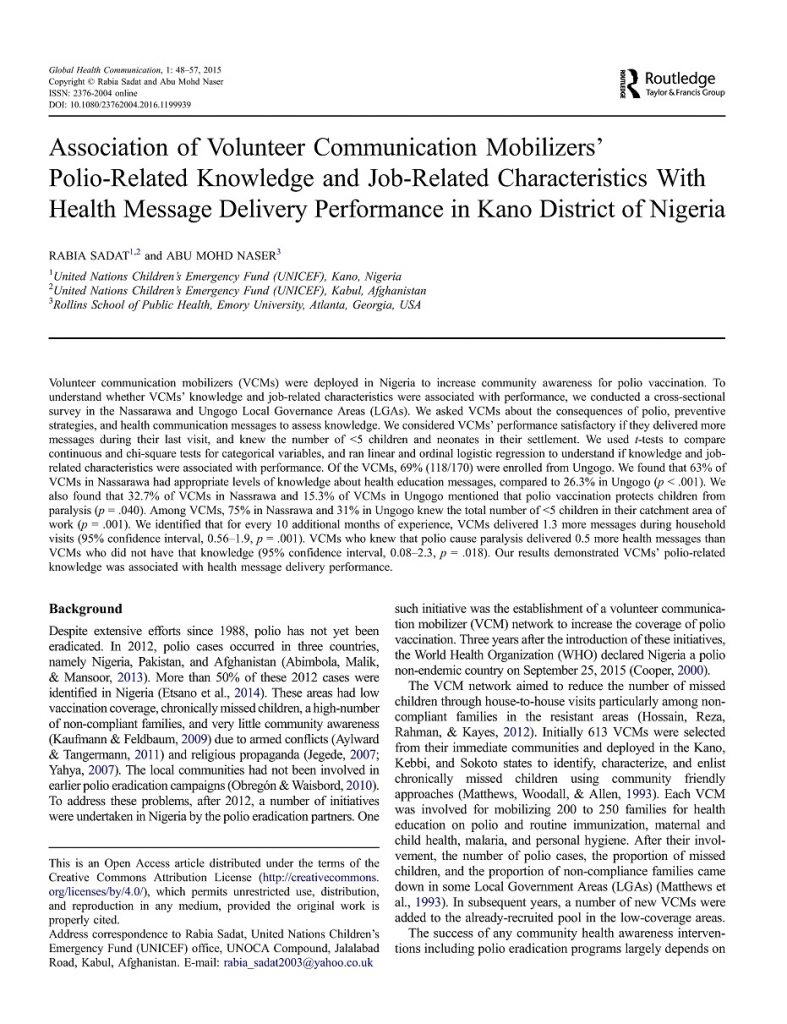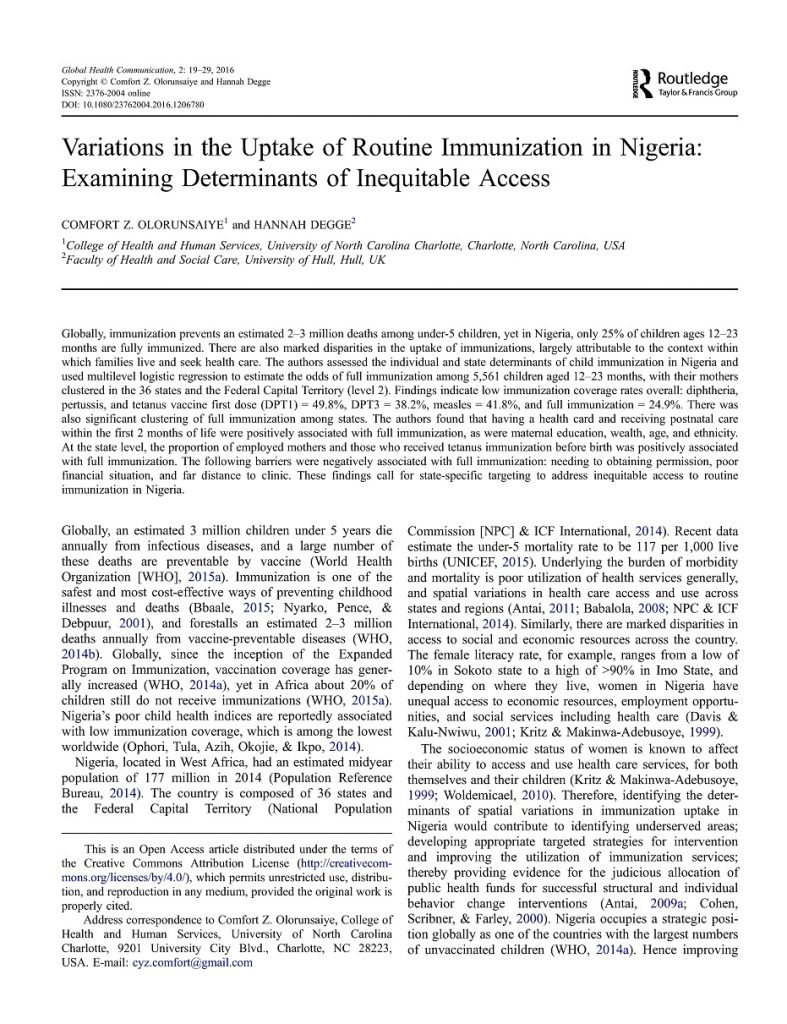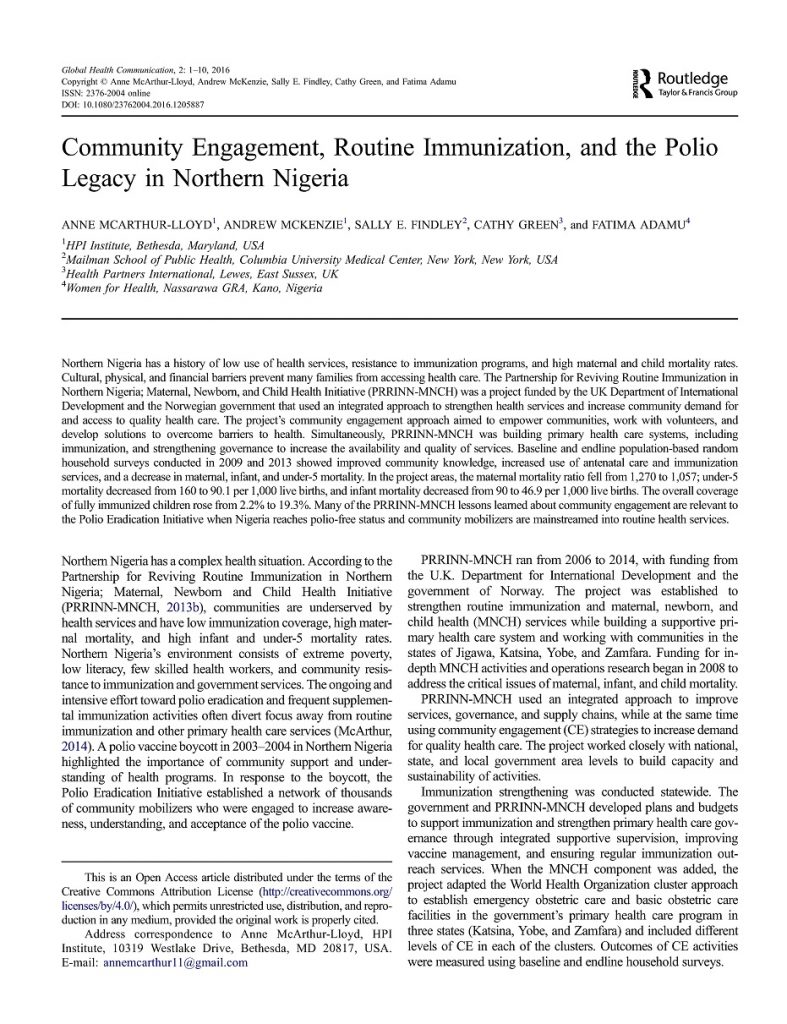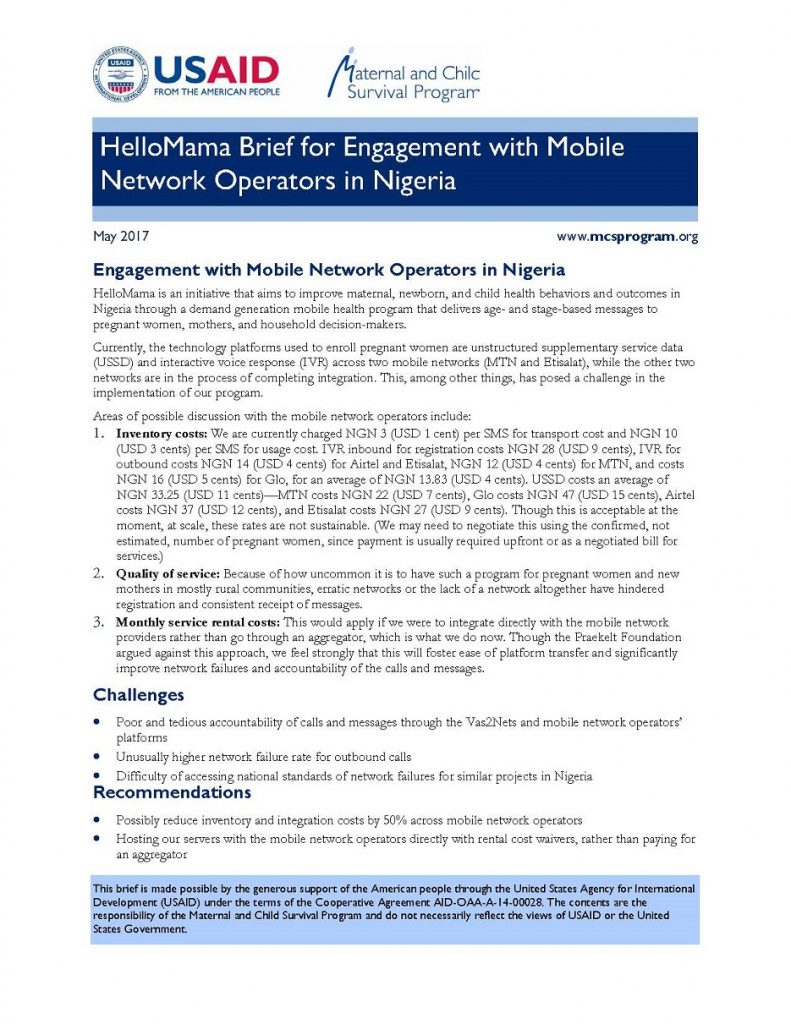
HelloMama is an initiative that aims to improve maternal, newborn, and child health behaviors and outcomes in Nigeria through a demand generation mobile health program that delivers age- and stage-based messages to pregnant women, mothers, and household decision-makers. This brief discusses challenges and recommendations of working with different technology platforms and mobile network operators in Nigeria. […]
Read More…
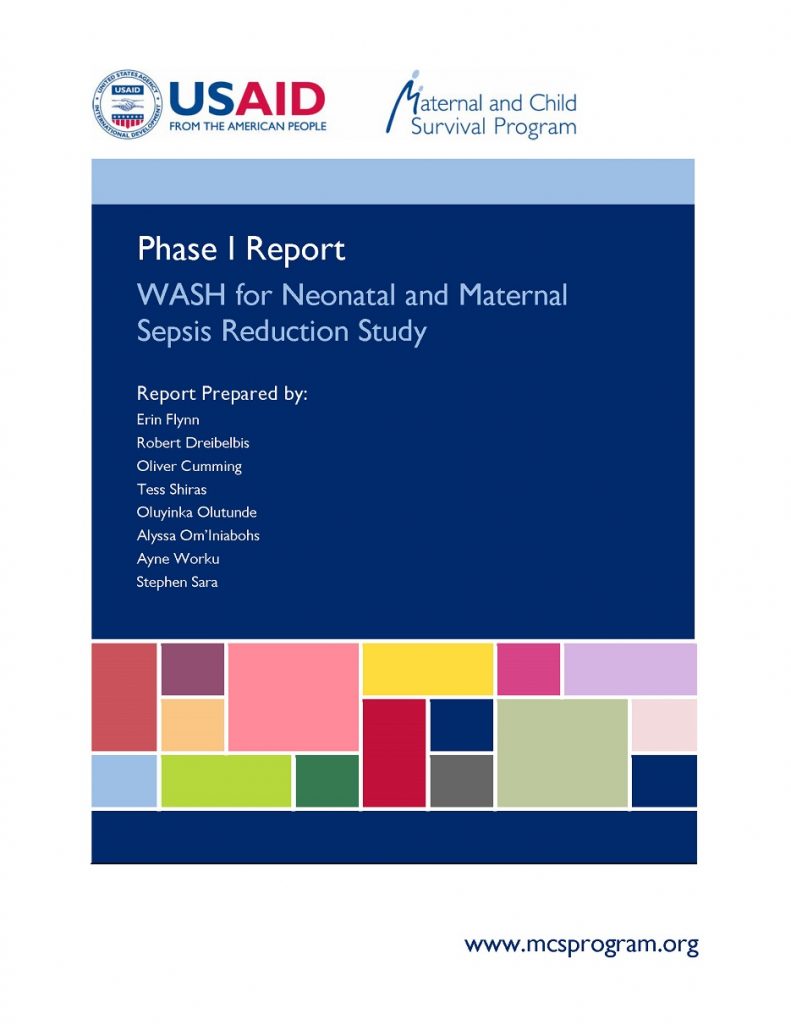
To investigate the current hygiene practices of health care staff, mothers, and other caregivers from the onset of labor through the first two days of life, MCSP commissioned the Improved Hygiene for Maternal and Newborn Sepsis Reduction Study. This study is part of a larger 4-phased activity MCSP is conducting in Eboni and Kogi States, […]
Read More…
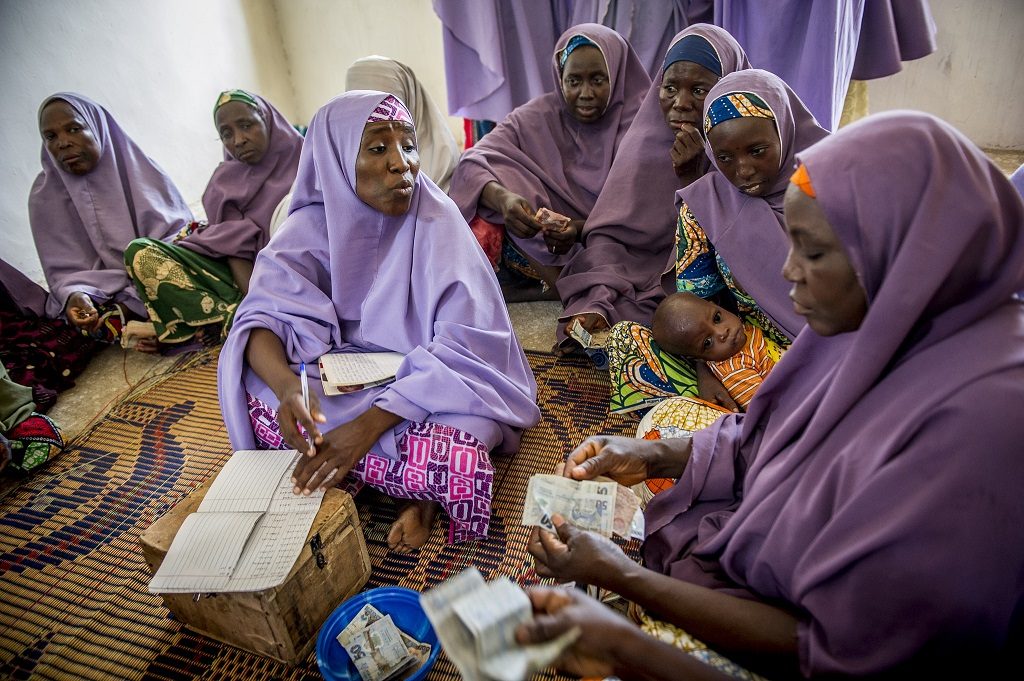
One reasons pregnant women shun health facilities is the inability to pay for needed healthcare services. In Nigeria, MCSP is working to change that. […]
Read More…
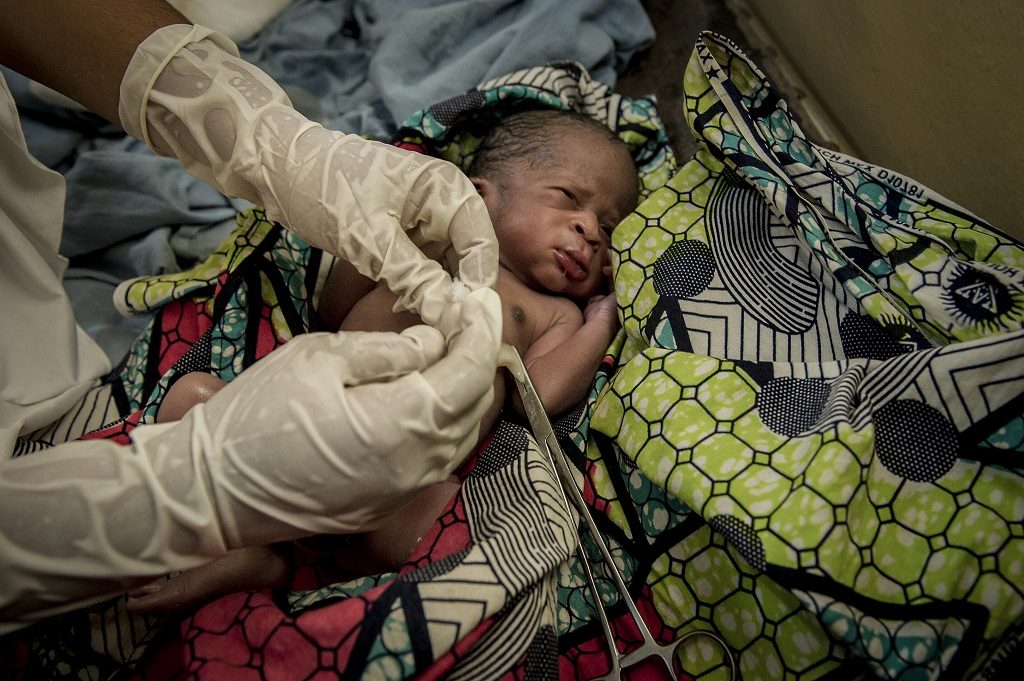
Affordable and easy to use, chlorhexidine gel, when applied to babies’ umbilical cords, prevents infections and saves lives. […]
Read More…
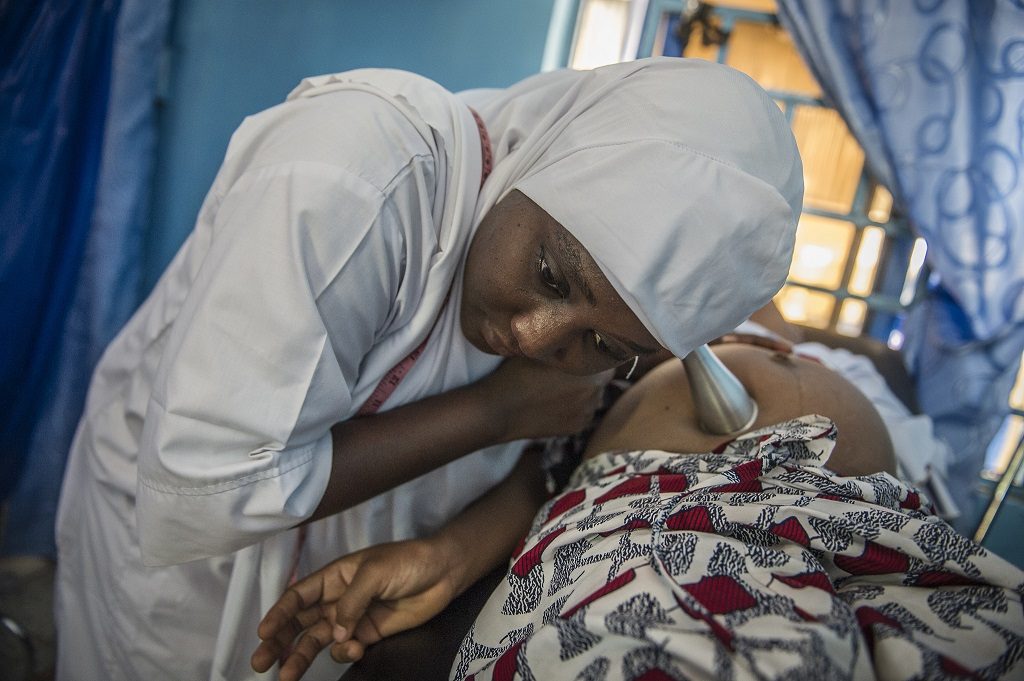
MCSP has empowered more than 700 healthcare workers from 120 facilities in Ebonyi and Kogi states to provide essential and basic emergency care for pregnant women and newborns. […]
Read More…
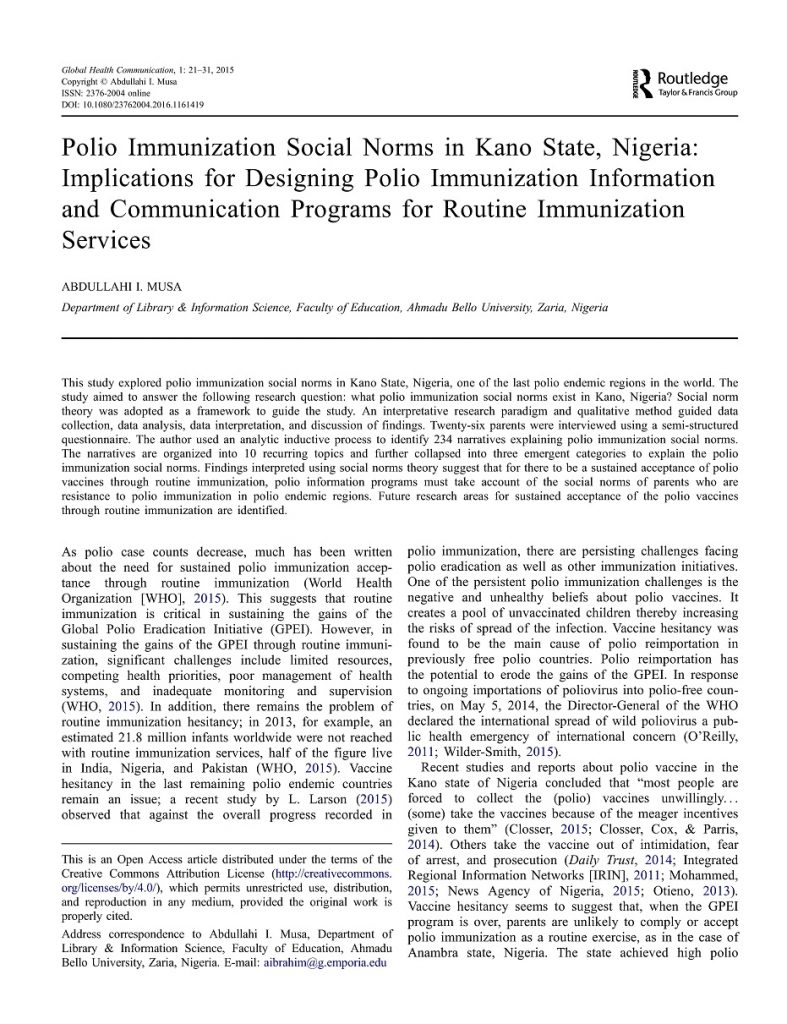
This study explored polio immunization social norms in Kano State, Nigeria, one of the last polio endemic regions in the world. The study aimed to answer the following research question: what polio immunization social norms exist in Kano, Nigeria To read the full, open access article in the journal Global Health Communication, click here. […]
Read More…
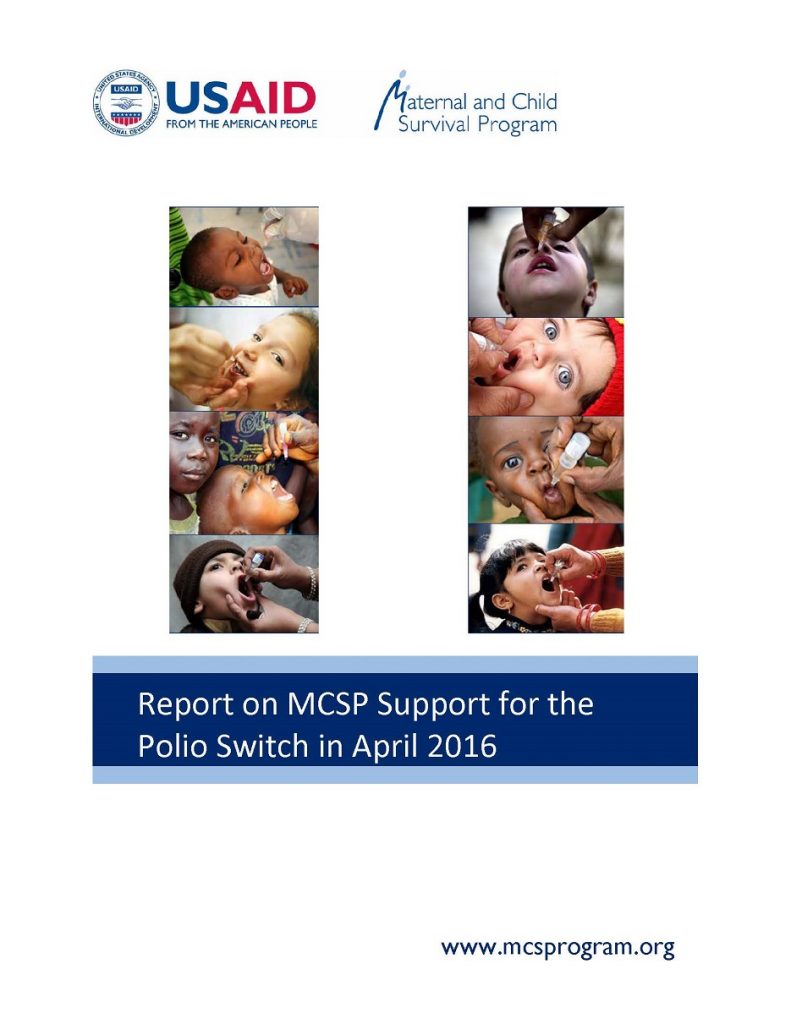
In April 2016, the largest and fastest globally-coordinated project in the history of immunization was carried out in 155 countries and territories. Known as “the switch,” this activity entailed replacing trivalent oral polio vaccine (tOPV), which protects against all three strains of the poliovirus, with the bivalent form (bOPV) which protects against two strains, types […]
Read More…





